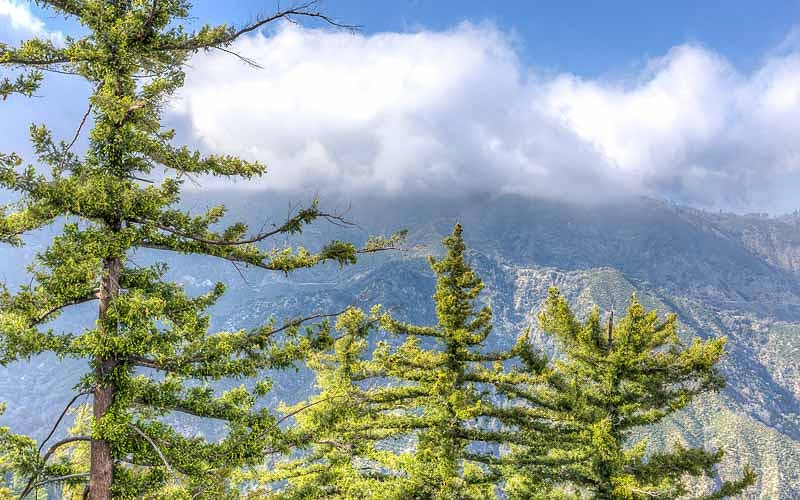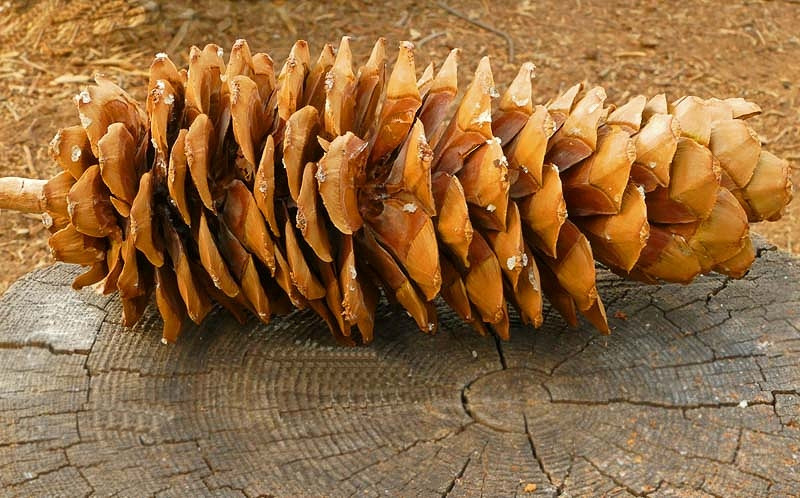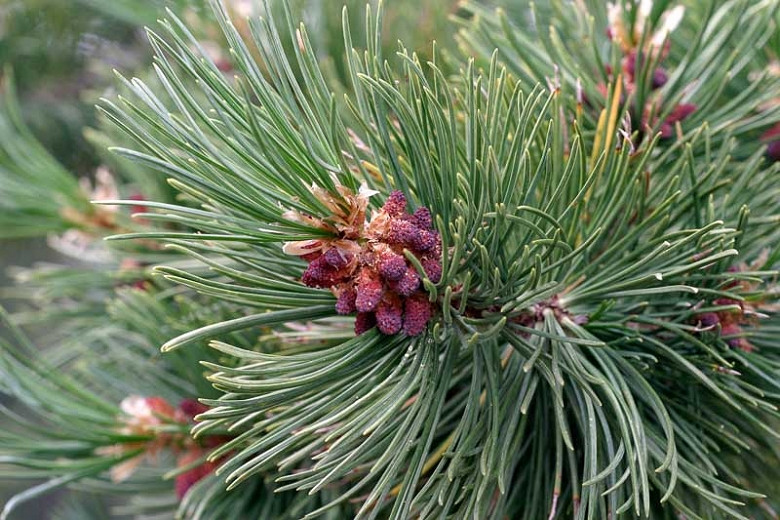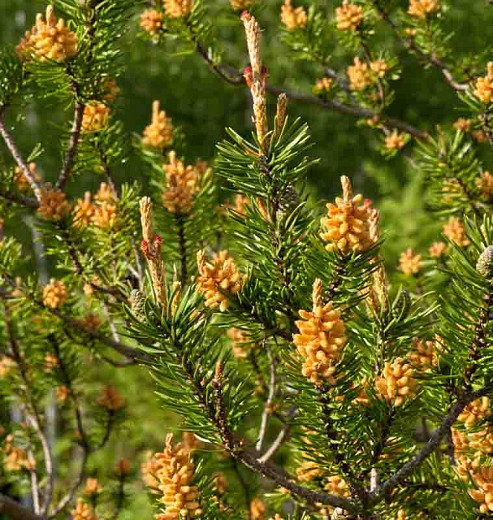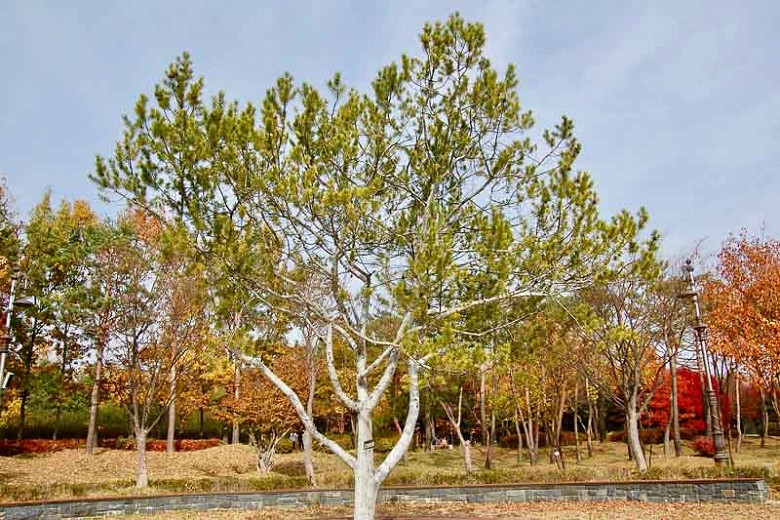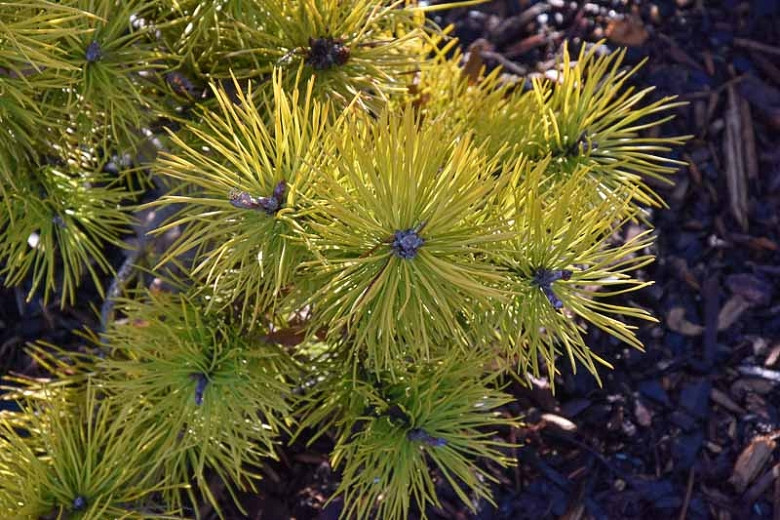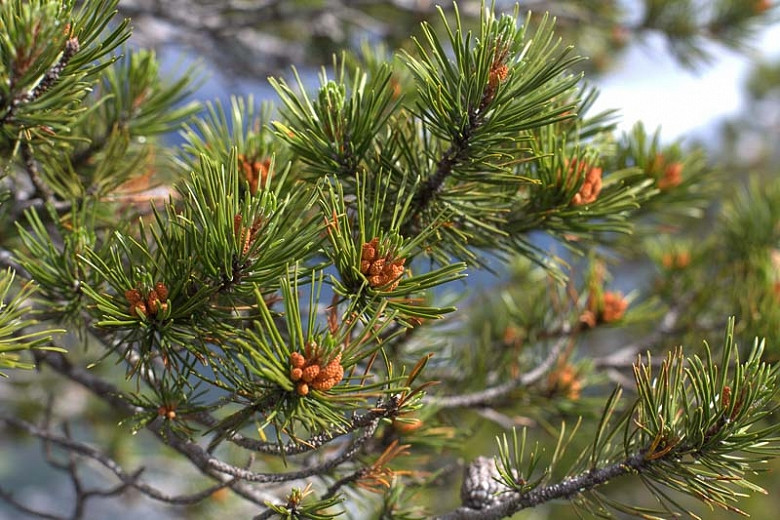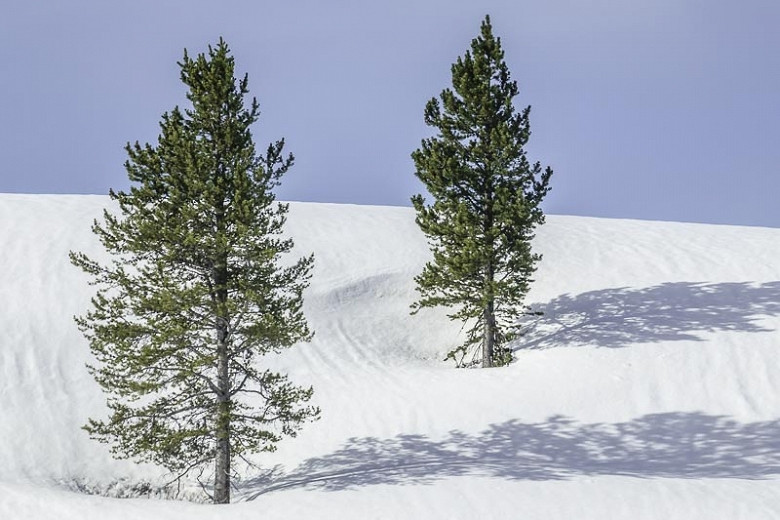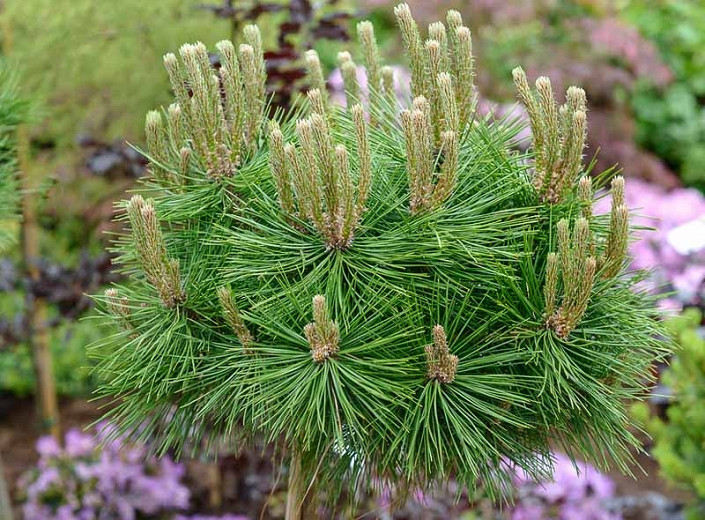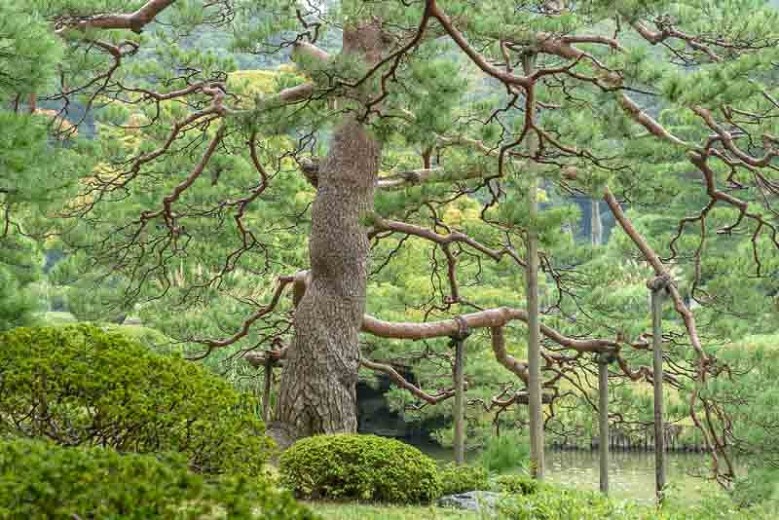Pinus lambertiana (Sugar Pine)
The tallest and largest pine tree, Pinus lambertiana (Sugar Pine) is an evergreen coniferous tree of narrow pyramidal habit in youth with a straight trunk free of branches much of its length and rather spreading and pendulous branches. With age, it becomes flat-topped with a wide spreading crown. Its dark blue-green needles, up to 4 in. long (10 cm), are presented in bundles of five. Sugar Pine is notable for having the longest seed cones of any conifer, mostly 10 to 20 inches (25–50 cm) long. Similarly to pine nuts, the seeds are edible. The bark of young trees is thin, gray-green, and smooth, becoming reddish, with narrow, broken, scaly ridges separated by deep furrows on mature specimens. Long-lived (500 years), Sugar Pine is regarded by some as the most princely of the genus. The common name refers to the sweetish resin that exudes from cut or burned heartwood which was also eaten by Indians.
- Grows up to 100-200 ft. tall (30-60 m) and 50 ft. wide (15 m).
- Performs best in full sun in well-drained soils.
- No pruning required.
- Native to Sierra Nevada, California, Oregon.
Requirements
| Hardiness | 7 – 9 |
|---|---|
| Climate Zones | 2, 2A, 2B, 3, 3A, 3B, 4, 5, 6, 7, 8, 9, 15, 16, 17 |
| Plant Type | Conifers, Trees |
| Plant Family | Pinus – Pines |
| Exposure | Full Sun |
| Season of Interest | Spring (Early,Mid,Late)Summer (Early,Mid,Late)FallWinter |
| Height | 100' – 200' (30m – 60m) |
| Spread | 40' – 50' (12m – 15m) |
| Water Needs | Average |
| Maintenance | Low |
| Soil Type | Chalk, Clay, Loam, Sand |
| Soil pH | Acid, Alkaline, Neutral |
| Soil Drainage | Well-Drained |
| Characteristics | Showy, Evergreen, Fruit & Berries |
| Native Plants | United States, California, Pacific Northwest, Oregon, Southwest, Nevada |
| Garden Styles | Prairie and Meadow |
